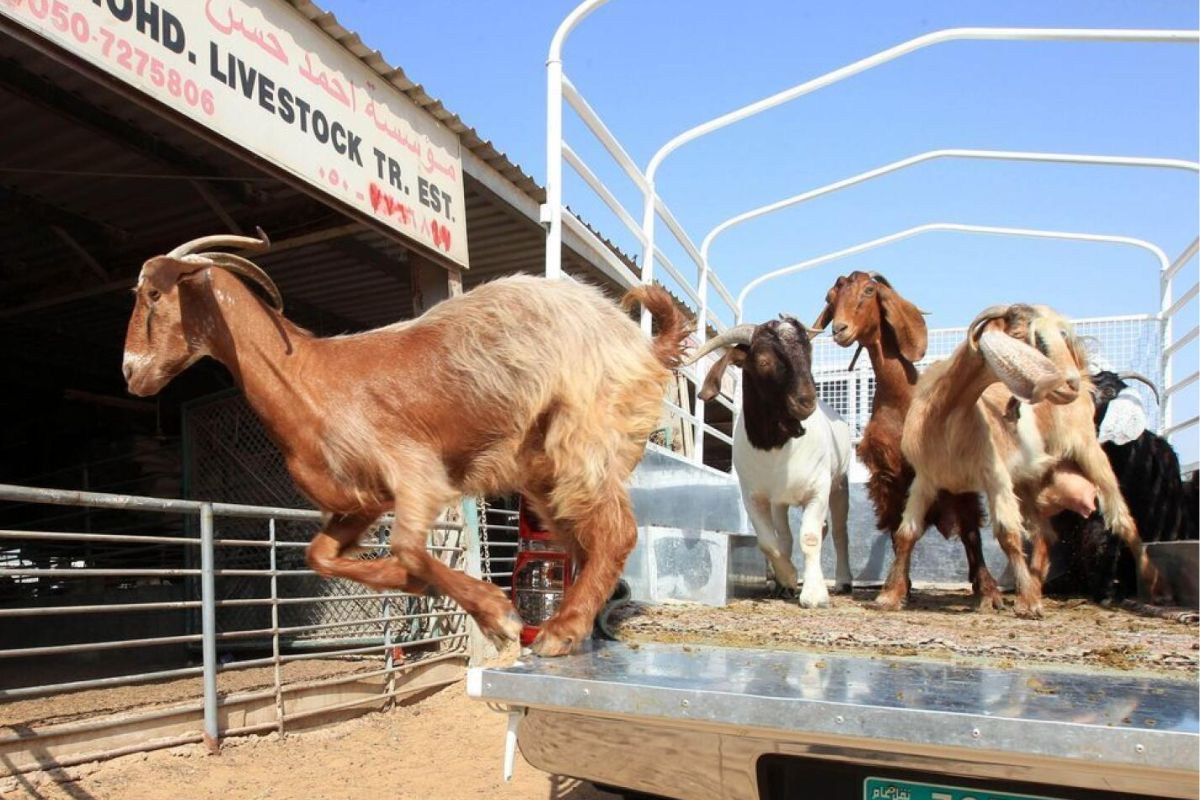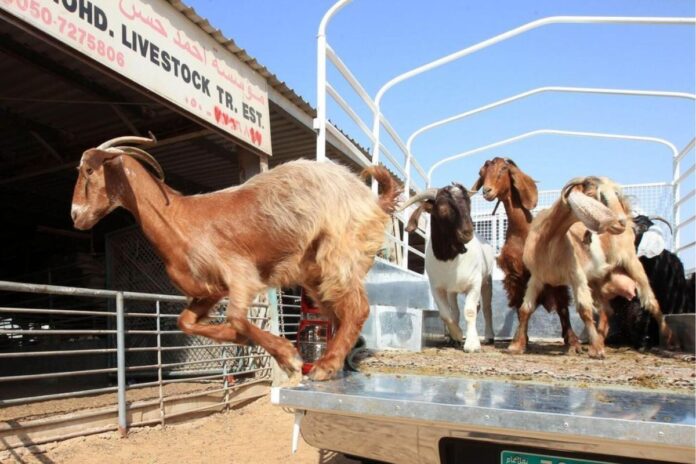
New to Celebrating Eid Al Adha in the UAE? Here's a Simple Guide to Traditions and Convenient Processes for Residents
Eid Al Adha, an important Islamic festival, is approaching, and Muslims are getting ready for the annual sacrifice. During this festival, an animal like a sheep, goat, or cow is traditionally sacrificed according to religious guidelines. This act of sacrifice is a symbol of devotion and humility towards God, and it commemorates Prophet Ibrahim's test of faith.
Eid Al Adha, also called the festival of sacrifice, is observed on Dhul Hijjah 10, which falls on June 28 this year. On this day, people dress in new clothes and head to mosques or special Eid grounds to offer prayers. After the prayers, many Muslims carry out the animal sacrifice. Families come together, spend time with loved ones, participate in charitable activities, exchange gifts, prepare traditional feasts, and show hospitality to neighbors and friends.
What is the rule on giving a sacrifice (udhiyah)?
Sheikh Ayaz Housee, an Islamic scholar and the imam of NGS and Khateeb at Al Manar Islamic Centre, emphasized that the act of sacrifice, known as udhiyah, is a confirmed sunnah (practice) in Islam and is strongly recommended for Muslims to observe.
Who should offer it?
Sheikh Ayaz further explained that when it comes to offering the udhiyah, it is recommended that the person be financially capable, having sufficient surplus after fulfilling their own needs and the needs of their dependents. The udhiyah is prescribed for each household, as the Prophet (PBUH) stated that
"the people of each household should offer an Udhiyah every year."
However, Sheikh Ayaz clarified that it is not necessary for the head of the family to offer a separate sacrifice for every individual member of the household. One sacrifice is sufficient to fulfill the obligation for the entire family.
Where can you sacrifice in Dubai?
To facilitate the Eid Al Adha rituals, local authorities have taken steps to ensure a seamless and compassionate execution of the religious traditions. They have set up designated areas and deployed trained professionals who adhere to the proper guidelines for performing the sacrifices.
Individuals have the option to purchase animals from cattle markets or utilize a convenient smart app to place orders online. If the animal is bought from the market, individuals can take it to the designated abattoirs in the city for the sacrifice to be carried out in accordance with religious practices.
How to do it via smart app
In collaboration with eight smart applications, the Dubai Municipality has introduced a convenient system for ordering and delivering sacrificed animals. The municipality's abattoirs ensure that the ritual is performed following approved health procedures, and the animals are promptly and efficiently delivered to residents' homes.
To accommodate the high demand during Eid Al Adha, the municipality has designated four abattoirs equipped with the latest technology. These abattoirs have a combined capacity of nearly 900 animals per hour. The locations of these slaughterhouses are Al Qusais Abattoir (282 animals), Quick Eid Abattoir in Al Qusais (300), Al Quoz Abattoir (125), Al Lisaili Abattoir (105), and Hatta Abattoir (82 animals per hour).
Abattoirs' working hours
During Eid, the Dubai Municipality has established specific working hours for the abattoirs. On the day of Arafah, the operating hours for the abattoirs in Al Qusais, Al Quoz, and Al Lisaili are from 7 am to 4 pm, while the Hatta abattoir operates from 7 am to 6 am.
For the first, second, and third days of Eid, all the abattoirs will be open from 7:30 am to 4 am, allowing residents to perform their sacrifices within these designated time frames.
How much does it cost?
The cost of an Eid sacrifice can vary based on several factors such as the type, weight, size, and breed of the animal. At the cattle market, the price range for a goat or sheep starts at Dh600, while for an ox, it starts at Dh4,000. It's important to note that these prices exclude the abattoir cost.
When ordering a sacrificial animal through a smart app, the price range increases slightly. For a goat, the starting price is Dh880, and for an ox or cow, it starts at Dh5,500. However, when using the app, it is the responsibility of the individual to take the animal to the abattoir, manage its collection and distribution, and other related tasks.
News Source: Khaleej Times
